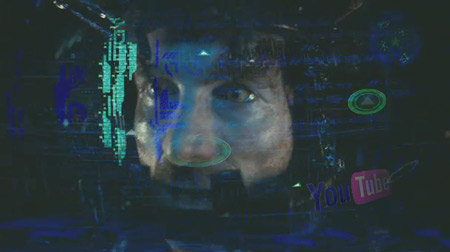
YouTube wrote up a blog post about imagining what the future of YouTube will be. I say thought it was kind of odd, mostly because obviously the article doesn't really *say* anything, just mentions that they're looking into the options of the future and how they can plant video into every aspect of our lives.
YT's done a lot in in four years. A whole lot. A huge, massive, impossible lot. Really, all online video. Prior to streaming/embeddable video, the only real players in the game were ebaumsworld and P2P apps. I remember when I first saw YT, it was when MySpace was starting to really surge in popularity, and through YT you could embed the video. A lot of other portals would allow you to upload content for free, but you could only check it out on their site, and it was meager at best. YT was meager as well, but shareable. And it exploded.
Now of course YT's going to be mum on their next plans. They're facing as much competition as ever and even though they have the most powerful stronghold on video by a considerable sum, it won't take much to knock them down (the magic words "income" with comparison to Hulu comes to mind). But where do they have left to go? There's a few options.
1) Saturation
YT is 90% computer, 9% mobile, 1% other (including TV)* (*not at all a real statistic). YT is still designed for the computer. That's not necessarily a bad thing, Nike's bread and butter still comes from shoe manufacturing. But where their community excels on the computer, their service needs to exist everywhere else. Video on the business front is still very private: gas stations control video ads at pumps, airports choose select cable channels, etc. Where's those promises of bank ATM's offering ads and trailers (which I still think is an awful idea) or screens on public transportation? Those are selected and implemented by private businesses. YT could rip out the carpet from under the feet by impelementing stronger AdSense/Analytics into these variable offerings. Google's still king on those fronts of hyper-efficiency, their service would be phenomenal to the business. This is another reason why I think YT bought On2 compressor technology: compressing video to the best quality from the appropriate devices.
2) Action
Everyone followed suit with YT when they released annotations and notes onscreen. YT went sluggish with banner ads to other services. Annotations are awesome, but they're still limited to linking between videos. Mostly, this is all that's necessary, but they could have so much more power if they did more. Take, for example, BooneOakley who built their entire site brilliantly through YouTube videos:
YT needs to assist businesses and artists that continue innovation like this. All BooneOakley's traffic goes to YT, not affiliated traffic.
3) Make "Video" not "Video"
What happens when HTML5 supports Theora natively? You change how video interacts with the site dynamically.
This still makes "video" into a rectangular window, but it's essentially like flash-capability without flash. The bad news means that annoying video-based banner ads will load much faster. The good news means that you won't need to "embed" anything into a page to interact with it, in terms of video.
One thing I absolutely loved in the film Starship Troopers (which I hold dear to my heart) was their PSA interludes that would have a news story and each would end with "Would You Like To Know More?" and either another story came on or there was a click that had put you more in-depth with the story. That would be the capability, on-the-fly, along with written words, actions or whatever else.
So where is YT going in the next 5 years? Probably all three. No doubt much more. Again, we started with embedding poor-quality video, and now we're able to annotate, act, advertise, analyze, reply via video, directly upload via most mobile devices, HD, 3D... the list goes on and on. Remember, Google employs some of the smartest people in the world, far smarter than me, so I'm certain these have all been in the pipeline for the last few months.
No comments:
Post a Comment